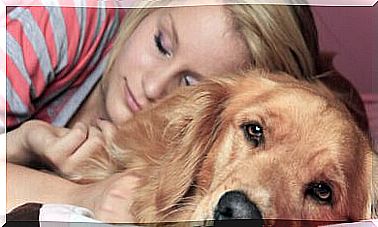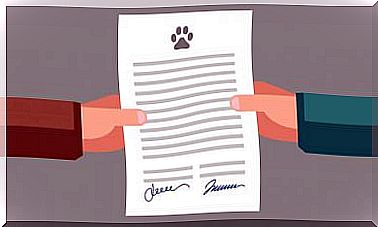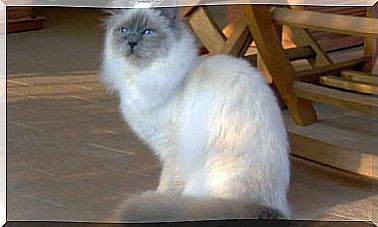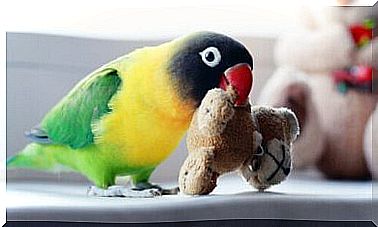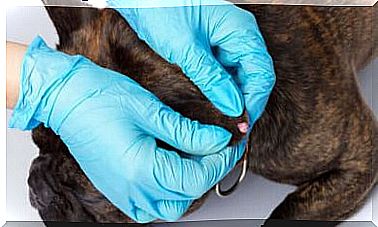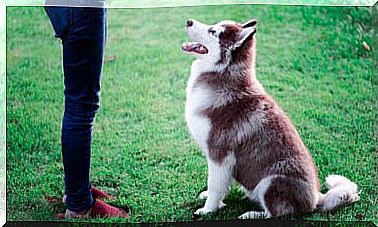Mourning For An Animal: The Same As It Feels For A Person?

When a pet dies, most owners feel the same way as losing a loved one. Sleep disturbances, eating problems or depression are more than common. The mourning for the death of an animal in many cases is even greater than that experienced for the loss of a human being. Find out more in this article.
Mourning for an animal: a painful moment
People who have come to terms with the death of their dog or cat know that it is really painful. It can be even worse than when a family member passes away. After the death of their pet, most owners have sleep or eating disorders or find it difficult to lead their daily life normally.

Many also report having problems with concentration, low energy levels, depression and apathy. Couples who have no children and who regarded their pet as a “baby” are more likely to divorce or separate after the pet’s death.
Although it is believed to the contrary, those who have a cat experience greater pain than those who have a dog. Because? Because cats are raised in smaller spaces, they are also said to have a spiritual connection with people.
Elderly and children: more vulnerable to mourning an animal
Although the impact generated by the death of a pet will depend on the personality of each of us, the truth is that this event is suffered most by two groups of people: the elderly and children.
As for an elderly person, it is likely that the animal was her only company after she became a widow or that all of the children left the house. In the case of children, many of them were born when the pet was already in the house and it is difficult for them to overcome this loss.
As with the death of any loved one, it is essential to deal with the typical process of mourning, which is to complete a cycle from when the animal is buried until the pain gradually fades, leaving room for fond memories.
Mourning an animal
One of a person’s first reactions when their cat or dog dies is not fully aware of the situation. Although the animal has lived many years or suffered a long illness (which should prepare us for the natural detachment), we still suffer when it is no longer at our side.
After having buried or cremated the animal, it is normal to feel its presence next to us. It is common to hear its paws beside the bed or its meowing coming from the door. Some claim their souls stay indoors to tell us that everything will be fine. Others claim that it is the habit of the senses towards these sounds.
It is during everyday situations, when we were spending our time with our deceased animal, that we feel the most pain for his death. When we come home, no one waits for us wagging his tail; we will not even feel the purr during the cold winter days; we miss someone to play with in the park, etc.
Over time, the memories of this wonderful being stop hurting so much and make us cry no more. It is easier for us to look at their photos or talk about their pranks without being overwhelmed by pain.
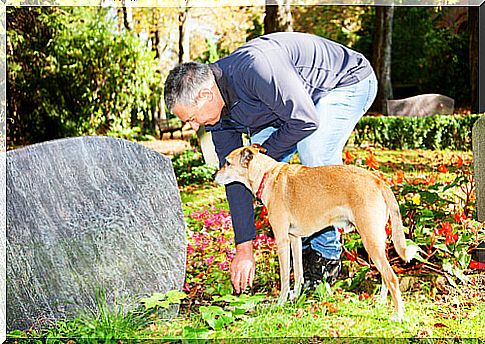
If our pet is buried in an animal cemetery, we can visit his grave and bring him his toys. We can also post his photo in a virtual cemetery (there are several on the internet) and leave him a message. These sites are great for understanding that we are not the only ones going through the difficult grieving process.
It is advisable to welcome another dog or cat into your home only after you have overcome the loss. Many people rush to buy or adopt another animal, they believe it is the best way to forget the one that has just died. However, it can be counterproductive. Because? Because we will not be in the right conditions to take charge of his life. In addition, we will make continuous comparisons between him and our old four-legged friend, trying in every way to make him look like the latter.



